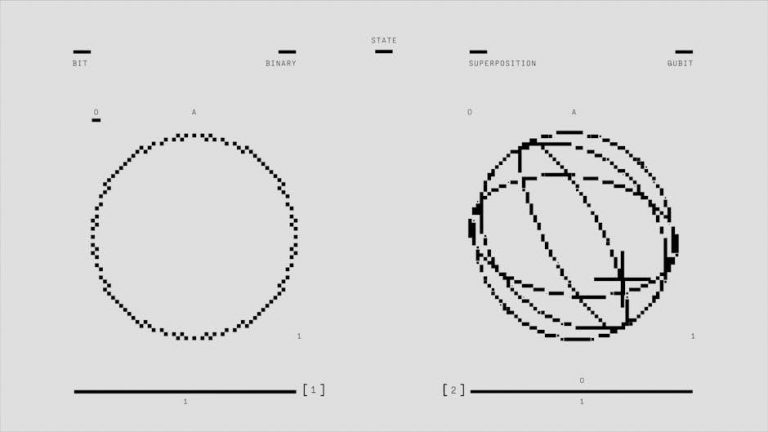Grade 7 math workbooks are essential tools for students to master foundational concepts. They provide structured practice, covering topics like numbers, algebra, and geometry, in a clear and engaging format. Regular use helps build confidence and improves problem-solving skills effectively.
1.1 Importance of Grade 7 Math Workbooks
Grade 7 math workbooks are indispensable for students aiming to excel in mathematics. They provide a comprehensive platform for practicing and mastering essential concepts, ensuring a smooth transition from basic to advanced math. Regular use of these workbooks helps students develop a strong foundation in numbers, algebra, and geometry, which are critical for future academic success. Workbooks also foster problem-solving skills, encouraging students to think critically and approach challenges with confidence. By offering structured exercises and real-world applications, they make learning engaging and accessible. Additionally, workbooks allow students to track their progress, identify weaknesses, and improve consistently. Teachers and parents often recommend them as a reliable resource for supplementary practice, making them a vital tool for achieving math proficiency in Grade 7 and beyond.
1.2 How to Choose the Right Workbook
Selecting the appropriate Grade 7 math workbook involves several key considerations; First, ensure the workbook aligns with the curriculum, covering essential topics such as numbers, algebra, and geometry. It’s crucial to choose a workbook that matches the student’s skill level, providing challenges without causing frustration. Look for a workbook that offers a variety of question types, including multiple-choice, short-answer, and word problems, to cater to different learning styles. Additionally, opt for a workbook with clear explanations and step-by-step solutions to help students understand concepts and correct mistakes. Consider workbooks that include visual aids like diagrams and graphs to enhance comprehension. Reviews from teachers or other students can provide insights into the workbook’s effectiveness. Finally, ensure the workbook is well-organized and includes features like progress tracking or bonus materials to keep learning engaging and productive.
1.3 Tips for Effective Use of Math Workbooks
To maximize the benefits of a Grade 7 math workbook, consider implementing the following strategies. First, establish a consistent study routine, dedicating a specific time each day for workbook practice. This helps build discipline and ensures steady progress. Begin with a thorough review of each topic, ensuring understanding before tackling exercises. When encountering difficulties, take time to revisit concepts, using the workbook’s explanations or seeking additional resources. Regularly review mistakes to identify patterns and improve problem-solving skills. Incorporate real-world applications to make learning relatable and engaging. For example, use everyday scenarios to practice budgeting or measuring. Encourage active learning by completing exercises without rushing and checking answers afterward. Additionally, use visual aids like diagrams or charts to enhance comprehension. Finally, track progress by setting achievable goals, such as completing a certain number of pages or mastering specific skills weekly. By following these tips, students can make the most of their math workbook experience, fostering confidence and academic success.

Key Math Topics for Grade 7
Grade 7 math focuses on essential skills like numbers, operations, algebra, geometry, and data analysis. Workbooks often include exercises on fractions, ratios, basic equations, and graph interpretation, helping students build a solid foundation for higher-level math.
2.1 Numbers and Operations
In Grade 7 math, numbers and operations form the backbone of foundational skills. Students explore integers, decimals, and fractions, learning to perform arithmetic operations with precision; Workbooks often include exercises on adding, subtracting, multiplying, and dividing various number types. A key focus is understanding negative numbers, including their addition and subtraction, which builds conceptual clarity. Decimal operations are introduced to refine accuracy, while fractions are emphasized to prepare students for algebraic expressions. Simplifying and comparing fractions, as well as converting between improper and mixed numbers, are common workbook activities. Additionally, exponents and roots are introduced, with practice problems to solidify these concepts. Workbooks also highlight the order of operations, ensuring students grasp the importance of sequence in calculations. Real-world applications, such as calculating distances or budgets, are often woven into problems to make learning practical and engaging. Regular practice through workbooks helps students build fluency and confidence in handling diverse numerical operations, fostering a strong math foundation for higher grades.
2;2 Algebra Basics
Algebra basics in Grade 7 math workbooks introduce students to solving equations and manipulating expressions. Key topics include simplifying expressions with like terms, understanding variables, and solving one-step and two-step equations. Workbooks emphasize balancing equations, ensuring students grasp the concept of equality. Graphing simple linear equations on a coordinate plane is also covered, helping students visualize relationships between variables. Another focus is writing and evaluating algebraic expressions, which builds foundational skills for more complex problems. Word problems are integrated to apply algebraic thinking to real-world scenarios, such as determining unknown quantities or comparing values. Workbooks often include puzzles and games to make learning engaging. Regular practice helps students develop logical reasoning and problem-solving strategies. By mastering these basics, students lay a solid foundation for advanced algebraic concepts in higher grades. The structured exercises in workbooks ensure confidence and fluency in manipulating and solving algebraic expressions and equations effectively.
2.3 Geometry and Measurement
Geometry and measurement are fundamental components of Grade 7 math, focusing on understanding shapes, spaces, and quantities. Workbooks typically include exercises on identifying and calculating the properties of 2D and 3D shapes, such as perimeter, area, and volume. Students learn to classify triangles, quadrilaterals, and polygons based on their attributes. Measurement skills are reinforced through activities involving length, mass, capacity, and temperature, emphasizing unit conversions. Visual aids like diagrams and charts help students visualize geometric relationships and solve practical problems, such as calculating the area of a room or the volume of a container. Workbooks also introduce basic concepts of symmetry, congruence, and transformations, laying the groundwork for more advanced geometry in later grades. Interactive exercises, such as drawing shapes to scale and using measuring tools, make learning engaging. Regular practice in these areas helps students develop spatial awareness and apply mathematical concepts to everyday situations, ensuring a strong grasp of geometry and measurement fundamentals.

2.4 Data Analysis and Graphs
Data analysis and graphs are essential skills in Grade 7 math, enabling students to interpret and present information effectively. Workbooks provide exercises on creating and understanding various types of graphs, such as bar graphs, line graphs, and pie charts. These activities help students organize data, identify patterns, and draw conclusions. Topics include plotting points on a coordinate plane, interpreting scales, and understanding the differences between discrete and continuous data. Students also learn to extract information from graphs to answer questions or make predictions. Workbook exercises often involve real-world scenarios, such as analyzing test scores, weather trends, or survey results, making learning relevant and engaging. Additionally, workbooks may include activities on calculating averages, modes, and medians, as well as identifying outliers. Interactive exercises, such as matching graphs to data sets or creating charts from given information, reinforce understanding. Regular practice with data analysis and graphs builds critical thinking and problem-solving skills, preparing students for more complex statistical concepts in higher grades. These skills are invaluable in everyday life, from understanding sports statistics to interpreting scientific data.
2.5 Word Problems and Applications
Word problems and applications are a crucial part of Grade 7 math, helping students connect abstract concepts to real-world scenarios. Math workbooks provide a variety of exercises that challenge students to translate written descriptions into mathematical equations and solve them effectively. These problems often involve multi-step processes, requiring students to identify relevant information, choose the appropriate operation, and justify their answers. Workbook exercises cover topics such as financial literacy, distance and speed, and combining quantities, ensuring practical relevance. For example, students might calculate the cost of items on sale, determine the time required for a journey, or allocate resources fairly. Workbooks also include word problems that integrate multiple math strands, such as combining algebra with geometry or data analysis. Regular practice with word problems enhances critical thinking, communication, and problem-solving skills. Workbook solutions often provide step-by-step explanations, helping students understand where they might have gone wrong and how to improve. This structured approach builds confidence and prepares students for more complex, open-ended problems in higher grades. By applying math to everyday situations, students develop a deeper understanding of its value and utility.

Resources for Grade 7 Math
Grade 7 math workbooks are widely available online and in bookstores. Teachers often recommend specific workbooks tailored to curriculum needs. These resources provide comprehensive practice, ensuring students master key concepts and skills effectively throughout the academic year.
3.1 Where to Find Grade 7 Math Workbooks
Grade 7 math workbooks are widely available through various channels, making them accessible to students and educators. Schools and educational institutions often provide these resources as part of their curriculum. Additionally, popular bookstores and online retailers like Amazon offer a wide selection of workbooks tailored to Grade 7 math. For digital convenience, websites such as edu.gov.mb.ca and projects.iq.harvard.edu provide downloadable PDF versions, ensuring easy access. Many educational platforms, including Khan Academy and Coursera, also offer supplementary materials that align with Grade 7 math standards. Parents and students can explore these resources to find workbooks that match their learning needs. Furthermore, libraries often carry a variety of math workbooks, and some publishers offer free samples or trial versions online. With so many options available, finding the right Grade 7 math workbook has never been easier.

3.2 Role of Teachers in Workbook Selection
Teachers play a pivotal role in selecting the most appropriate Grade 7 math workbooks for their students. They assess the curriculum requirements and ensure the workbook aligns with learning objectives. Educators also consider the difficulty level and content depth to match students’ abilities. By evaluating reviews and recommendations, teachers can identify workbooks that offer clear explanations and engaging exercises. They often collaborate with colleagues to share insights and select materials that have proven effective. Additionally, teachers may customize workbooks to address specific classroom needs, ensuring a tailored learning experience. Their expertise in identifying high-quality resources helps students achieve better academic outcomes. Moreover, teachers can provide guidance on how to effectively use the workbooks, maximizing their educational value. This involvement ensures that students receive the support they need to excel in math.

Study Strategies for Success
Effective study strategies involve active learning, regular practice, and understanding concepts deeply. Use workbooks to reinforce lessons, solve problems systematically, and review mistakes. Consistent effort and seeking help when needed lead to academic success and confidence in math.
4.1 Building Thinking Classrooms
Building Thinking Classrooms is an innovative approach to mathematics education that encourages active participation and collaboration among students. This method, inspired by the work of Peter Liljedahl, focuses on creating environments where students engage deeply with math problems, fostering critical thinking and creativity. By incorporating strategies like problem-based learning and peer discussion, teachers can help students develop a stronger understanding of mathematical concepts.
Grade 7 math workbooks can serve as valuable resources in this approach. They provide structured activities and exercises that align with the principles of Thinking Classrooms, such as problem-solving tasks that require collaboration and iteration. Workbooks also offer opportunities for students to reflect on their learning, identifying areas where they need additional support or practice.
Key benefits of this approach include improved problem-solving skills, enhanced collaboration, and a growth mindset among students. By integrating workbooks into Thinking Classrooms, educators can create a balanced learning experience that combines individual practice with collaborative exploration, ensuring students are well-prepared for future math challenges.
4.2 Iterative Learning in Math
Iterative learning is a powerful strategy in mathematics education that involves revisiting concepts multiple times to deepen understanding. This approach encourages students to engage with material repeatedly, refining their knowledge and skills over time. For Grade 7 math, iterative learning is particularly effective, as it helps build a strong foundation for more complex topics.
Workbooks play a crucial role in iterative learning by providing structured exercises and problems that students can revisit. They often include activities designed to reinforce previously learned concepts while introducing new ones. This cyclical process helps students identify areas where they need additional practice and allows them to track their progress over time.
Teachers can support iterative learning by encouraging students to revise chapters and practice regularly. This method fosters a growth mindset, helping students view challenges as opportunities to improve rather than obstacles. By embracing iterative learning, students in Grade 7 can develop resilience and confidence in their math abilities, setting them up for long-term success.

Benefits of Using a Workbook
Grade 7 math workbooks provide structured practice, helping students build a strong foundation in math. Regular use improves problem-solving skills, boosts confidence, and enhances understanding of key concepts through consistent and focused learning experiences tailored to their needs.
5.1 Building a Strong Math Foundation
Grade 7 math workbooks play a crucial role in establishing a robust mathematical foundation for students. By providing structured and comprehensive exercises, these workbooks help students master essential concepts such as numbers, operations, and algebraic thinking. Regular practice through these materials ensures that students develop a deep understanding of mathematical principles, which is vital for tackling more complex topics in higher grades.
The exercises in these workbooks are designed to reinforce learning and promote iterative practice. They often include a variety of problem types, from basic computations to word problems, enabling students to apply their knowledge in diverse scenarios. This consistent exposure to math concepts fosters critical thinking and problem-solving skills, which are indispensable in both academic and real-world contexts.
Additionally, workbooks offer a way for students to track their progress over time. By revisiting and refining their understanding of key concepts, students can identify areas where they need improvement and focus their efforts accordingly. This iterative learning process not only strengthens their math foundation but also builds confidence and a growth mindset, essential for long-term academic success.
5.2 Improving Problem-Solving Skills
Grade 7 math workbooks are invaluable for enhancing problem-solving abilities, a critical skill for academic and real-world success. These workbooks typically include a wide range of exercises, from straightforward calculations to complex word problems, designed to challenge students and encourage deeper thinking. By regularly engaging with these problems, students develop the ability to approach math with confidence and creativity.
One of the key benefits of using a workbook is its ability to foster logical reasoning and critical thinking. Many exercises require students to break down problems into manageable steps, promoting a systematic approach to problem-solving. This process helps students understand how to apply mathematical concepts to real-life scenarios, making math more relatable and practical.
Additionally, workbooks often include iterative learning opportunities, allowing students to revisit and refine their solutions. This repetition reinforces problem-solving strategies and helps students identify patterns and connections between different math topics. Over time, this consistent practice leads to improved accuracy and efficiency in tackling even the most challenging problems.
By using a workbook, students can also track their progress and celebrate their improvements, which motivates them to continue refining their skills. This structured approach to problem-solving builds resilience and a growth mindset, essential for overcoming obstacles in math and beyond.

Additional Resources
Supplementary materials like online tutorials and practice sheets complement Grade 7 math workbooks. Websites such as Manitoba Education offer resources for extended learning. These tools enhance understanding and provide diverse ways to engage with math concepts.
They support structured practice and reinforce classroom lessons effectively.
6.1 Supplementary Materials for Practice
Supplementary materials for practice are invaluable for reinforcing math concepts beyond the workbook. These resources, such as online worksheets, interactive tools, and video tutorials, provide diverse ways to engage with the curriculum. Many websites offer printable PDFs tailored to Grade 7 math, covering topics like algebra, geometry, and data analysis. These materials often include answers or solutions, allowing students to self-assess and track their progress. Additionally, educational apps and online platforms offer personalized practice sessions, adapting to the student’s skill level. Teachers and parents can also create custom exercises using software or by combining problems from multiple sources. Supplementary materials are particularly useful for students who need extra support or enrichment. They encourage independent learning, helping students build confidence and fluency in math. By integrating these resources into their study routine, students can explore concepts in new ways, making their learning experience more dynamic and effective. This holistic approach ensures a well-rounded understanding of Grade 7 math, preparing students for future challenges.
